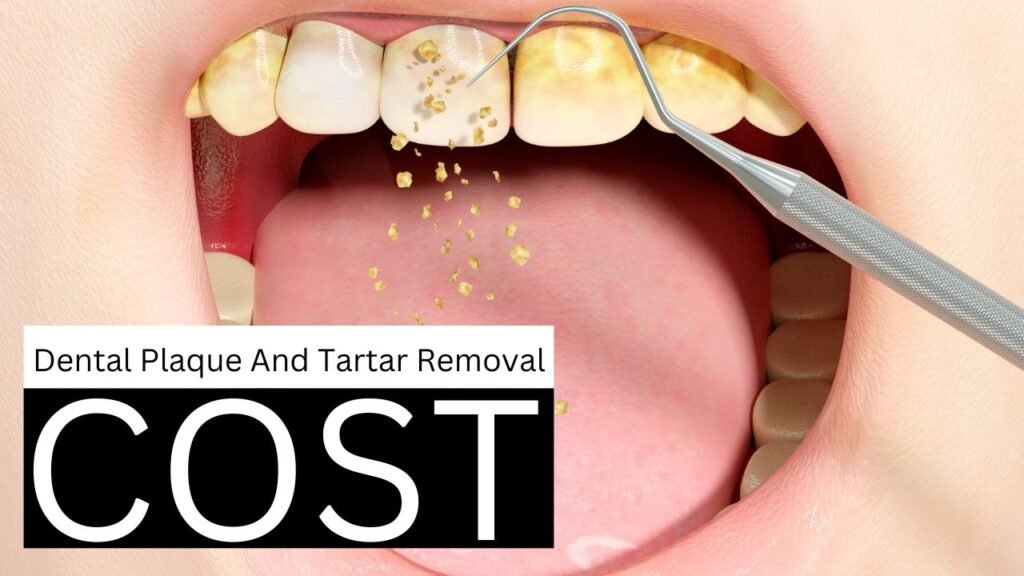Dental Plaque and Tartar: What You Need to Know

Plaque and tartar removal cost is a common concern for patients planning dental care. Understanding pricing, treatment types, and prevention steps helps you manage buildup while protecting your smile and budget.
While regular brushing and flossing help prevent plaque buildup, professional dental cleanings are essential to remove tartar, the hardened version of plaque.
This Youtube video below from Smile Influencers explains the difference between plaque and tartar and how each forms on teeth. It shares ways to remove plaque and prevent calculus buildup. The tips support better daily cleaning and long-term oral health.
Understanding the Cost of Dental Plaque and Tartar Removal
Several factors influence the cost of removing dental plaque and tartar:
- Geographic Location: Dental services vary significantly by location. Clinics in larger cities tend to charge more due to higher overhead costs, whereas rural areas may have lower fees.
- Severity of Buildup: The more severe the buildup, the higher the cost. Mild buildup might require a routine cleaning, while severe cases may need deep cleanings or periodontal treatments.
- Dentist’s Fees: Fees can vary based on the dentist’s experience, reputation, and the technology they use. Comparing fees from different dentists can help you find a more affordable option.
Average Costs for Plaque and Tartar Removal
| Service Item | Average Cost (USD) | Notes |
|---|---|---|
| Initial Consultation | $50 – $100 | May be waived if you proceed with the cleaning. |
| Basic Cleaning | $75 – $200 | Includes plaque and tartar removal. |
| Deep Cleaning | $140 – $300/quadrant | Required for severe buildup. |
| Dental X-rays | $25 – $250 | Varies by type and number of X-rays. |
| Fluoride Treatment | $20 – $50 | Optional but recommended for enamel strengthening. |
| Dental Sealants | $30 – $60/tooth | Optional for added decay protection. |
| Anesthesia | $50 – $100 | Usually not needed for basic cleaning. |
| Aftercare Products | $10 – $50 | Optional items like specialized toothpaste or mouthwash. |
Total Estimated Cost: $75 – $200 for basic cleaning; up to $600 – $1,200 for deep cleaning per quadrant, excluding optional treatments.
Dental Insurance Coverage
Dental insurance often covers part of the cost of plaque and tartar removal. Coverage varies by plan, with some covering routine cleanings at 100% and others requiring a copayment. Review your policy or contact your provider for details.
Quick Tips to Prevent Plaque and Tartar Buildup
- Brush your teeth twice a day with fluoride toothpaste.
- Floss daily to remove plaque between teeth.
- Limit sugary and acidic foods and drinks.
- Visit your dentist regularly for check-ups and cleanings.
- Use an antibacterial mouthwash.
Frequently Asked Questions
Q: How often should I have my teeth professionally cleaned? A: Most dentists recommend every six months, but your dentist may suggest more frequent cleanings based on your needs.
Q: Is plaque and tartar removal painful? A: It’s typically painless. However, if you have sensitive teeth or gum disease, you might experience some discomfort. Your dentist can use anesthesia or numbing gel to help.
Q: Are there any home remedies for removing plaque and tartar? A: While you can prevent plaque with brushing and flossing, tartar must be professionally removed.
Q: Can I use over-the-counter tools to remove plaque and tartar myself? A: No, improper use can damage your teeth and gums. It’s best left to dental professionals.
Resources:
Note: The information provided in this article is for informational purposes only and should not be taken as dental or medical advice.
Please consult with a qualified dentist for personalized advice and treatment options.
Find Your Perfect Dentist
Easily book appointments with top-rated dentists in your area
Need Emergency Dental Care?
Get immediate help from verified dental professionals